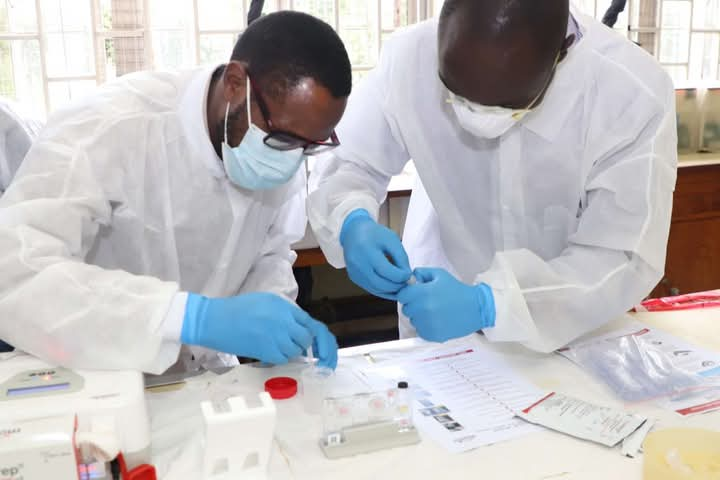KENYA : Nakuru County is easily, faster screening, diagnosing and treating Tuberculosis (TB) reducing further community transmission thanks to adoption of automated technology.
The advanced technology, including a digital, Artificial Intelligence-enabled X-ray machine, GeneXpert machines, and TrueNat point-of-care nucleic acid amplification test equipment, aims at enhancing the precision and efficiency of TB diagnosis in the county, hence facilitating appropriate treatment.
The County TB, Leprosy and Lung Disease Coordinator, Dr. Neimah Barasa, said that up to 50 per cent of people with TB do not have the classical symptoms of the disease.
Dr. Neimah noted that the only way such patients would be diagnosed early and before they have symptoms was through new advanced technologies.
She explained that the county government had made significant strides in TB management with 637 health facilities spread across the county, out of which 250 are TB treatment sites, while 102 are diagnostic sites.
The coordinator disclosed that now Nakuru had in place eight TB sample referral sites equipped with advanced technology, including one digital Artificial Intelligence-enabled X-ray machine, seven GeneXpert machines and one TrueNat point-of-care nucleic acid amplification test equipment.
She added that last year the Nakuru County Teaching and Referral Hospital (NCTRH) was among eight facilities nationwide that initiated the programme of Digital Chest X-ray (DCXR) with AI, introducing the new diagnostic tools in accordance with World Health Organization recommendations.
The coordinator expressed optimism that with the new tools they were edging towards finding the 40 per cent of missing cases, thereby reducing further community transmission of TB.
Four years ago, the World Health Organization (WHO) endorsed the rapid molecular test TrueNat.
TrueNat, which is more advanced in testing, is said to be a chip-based molecular test for TB, which is battery-powered to operate in peripheral laboratories and can generate results in one hour.
Dr. Neimah indicated that in addition to fast detection of TB, the equipment could detect resistance to Rifampicin in an additional one hour, meaning that if a patient is detected to have this strain that is resistant to Rifampicin, they would be put on the right medication.
She noted with satisfaction that the TrueNat point-of-care nucleic acid amplification test, which is a portable digital Chest X-ray equipment, had improved access to TB testing for patients with signs and symptoms of TB, especially in hard-to-reach areas where sample referral systems are unavailable, or not properly constituted.
GeneXpert diagnostics have become the gold standard for TB testing, particularly for drug-resistant TB (DR TB), which is difficult to diagnose through the traditional sputum smear technologies or chest X-rays.
GeneXpert is said to also rapidly detect rifampicin-resistant TB (a proxy for DR-TB diagnosis) along with drug-susceptible TB, but the diagnostic machines need electricity and are expensive to operate.
Dr. Neimah pointed out that back in the day, when health care facilities used to rely on the old x-ray machines and other methods, so many TB cases would be missed, and also it would take many days before getting the results.
The digital Artificial Intelligence-enabled X-ray machine at the Nakuru County Teaching and Referral Hospital (NCTRH) was reportedly acquired through support from the National TB Programme, the African Medical Research Foundation and Qure.ai, an AI solutions provider.
The technology provides automated interpretation of radiology exams like X-rays, CTs and ultrasound scans, enabling faster diagnosis and speedier treatment of the disease.
Dr. Neimah was speaking during a meeting with a group of health workers from Homa Bay County who were in Nakuru on a learning exchange programme focusing on strengthening Tuberculosis (TB) care and service integration.







